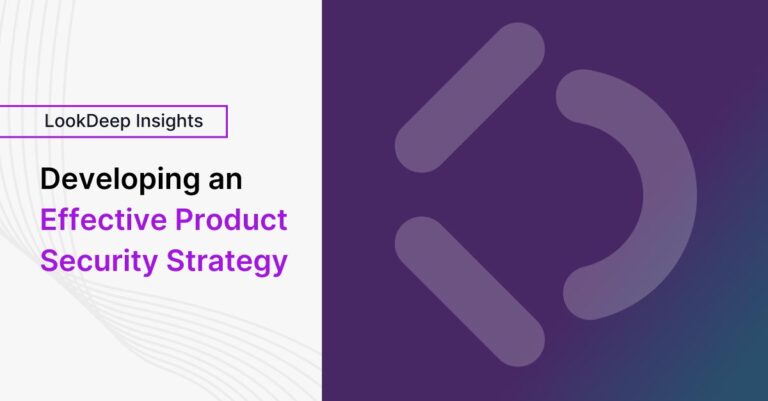Narinder Singh Of LookDeep Health On How To Develop An Effective Product Security Strategy An Interview With David Leichner
Cyber threats are evolving, with malicious AI posing a significant risk to the digital infrastructure of organizations. How can Chief Product Security Officers (CPSOs) effectively protect their products and their organizations against these AI-driven cyber threats? What should be their primary areas of focus when developing a product security strategy to ensure the security and integrity of their organization’s products? This series will delve into the role of CPSOs in crafting robust product security strategies to safeguard against malicious AI. We will explore their challenges, successes, and insights into how to maintain the integrity and security of their products in this rapidly changing cyber landscape. As a part of this series, I had the pleasure of interviewing Narinder Singh.
Narinder is co-founder and CEO of LookDeep Health. Prior to that, he was co-founder and president of Appirio, a pioneer in cloud computing and the first cloud investment of Salesforce.com and Sequoia Capital. Appirio grew to over 1,200 employees and was acquired by Wipro in 2016. Previous to Appirio, Narinder worked in the Office of the CEO at SAP and ran product development at webMethods.
He holds a BS from Northwestern, an MBA from The Wharton School of the University of Pennsylvania and Masters in Translational Medicine from The University of California, San Francisco and Berkeley. He serves on the boards of Par Technologies (NYSE:PAR) and the Sikh Coalition.
Thank you so much for joining us in this interview series! Before we dig in, our readers would like to get to know you. Can you tell us a bit about how you grew up?
I was born in Middletown, Ohio and grew up in the greater Cincinnati area. I had a wonderful community of friends yet was acutely aware that I was perceived as foreign. The Iran hostage crisis, the first Iraq war and others changed what foreign meant over time.
I grew up practicing martial arts as a teenager, and the studio was a refuge and source of inspiration — where the color on the belt you wore was the only justifiable source of discrimination. Some of the lessons I carry with me from those early years include perfection through practice, creativity from stability, respect for others and yourself, and the seamless transition from safety to risk.
Is there a particular story that inspired you to pursue a career in cybersecurity? We’d love to hear it.
In my first job at a product company, I often talked about our core product and the one I created with prospective customers. Inevitably, in every meeting someone would ask “what about security?” Over time, I started to see that the person asking that question was either the deepest thinker in the room or the most basic. There was seldom a middle ground. How you answered that question differed greatly depending from which pole their interest emanated. That increased my curiosity over the depth of the topic and the importance of creating the perception and reality of a secure system.
Can you share the most interesting story that happened to you since you began this fascinating career?
In the early days of Appirio, we built demos as marketing tools. We were small and needed to do something that was hard for larger, less skilled competitors to imitate. One caught the eye of a product marketing leader at Salesforce; we arranged to demo a cutting edge capability of their platform — VisualForce for insiders who want to know when this was — which would involve Salesforce CEO Marc Benioff as the interviewer while I demonstrated the solution. Fifteen minutes before the demo, something was not working. I called Jason, our Chief Architect, to help fix it on the stage laptop on the fly as people waited to enter the venue. Marc saw the code open on the screen and simply said, “Narinder, you shouldn’t make changes right before the event.” I nodded and said everything was fine.
Of course, this story ends with the demo going very well and led to me presenting various demos with Marc more than a dozen times across the world at some of Salesforce’s largest events.
The problem was based on how a browser ran on a PC vs a Mac in those days; without Jason’s quick actions, the demo would not have gone well, and I’m almost certain that I’d have never been invited back to present with him again. It’s one of the most pointed examples of luck, skill and timing all coming together for success. Here, I realized the need for humility in victory and steadfast belief in defeat.


